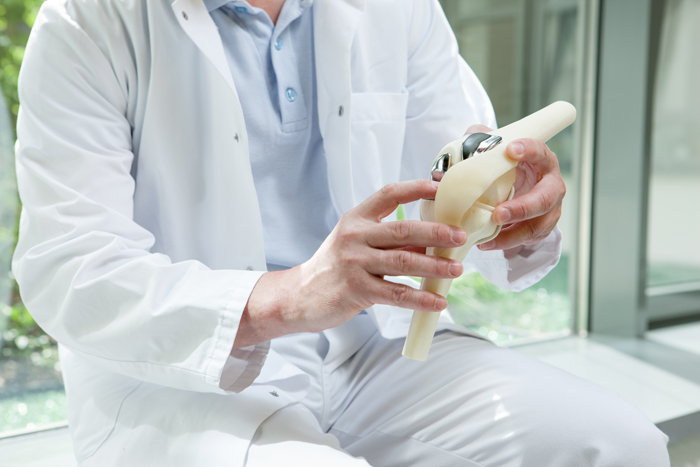Orthopedic - Joint Replacement Surgery
There are many conditions that may need joint replacement surgery. Joint pain is caused due to cartilage damage either due to fracture, arthritis or any other medical condition. If physical therapy, medications and other non-surgical methods do not help, joint replacement surgery is recommended.
To know more, consult an orthopedic doctor near you. Or visit an orthopedic hospital near you.

Why is a joint replacement surgery conducted?
A joint replacement surgery removes the damaged part and replaces it with prosthetics made of metal, ceramic or plastic. These prosthetic implants would help you get your natural movement back. Thus, to get relief from the pain, you should immediately consult an orthopedic surgeon. A joint replacement surgery takes a few hours and can be performed as an outpatient surgery.
What are the types of joint replacement surgery?
- Total Joint Replacement Surgery - Also known as arthroplasty procedure, it removes damaged joints and replaces them with artificial implants.
- Hip Replacement Surgery - Anterior hip replacement and partial hip replacement are the two types of hip replacement surgery.
- Knee Replacement Surgery - Knee replacement surgery is of two types, namely partial knee replacement and robotic surgery. The surgery involves the removal of damaged tissue, resurfacing areas and implants of the artificial parts.
- Shoulder Replacement Surgery - The surgery helps stabilize the shoulder joint and also restores the motion and function of the shoulder.
- Joint Preservation Surgery - The surgery helps restore pain-free and normal function of the hip, shoulder and knee joints.
Who qualifies for joint replacement surgery?
Joint replacement surgery is usually suggested for patients suffering from joint problems, arthritis and end-stage joint diseases of hips and knees, even after non-surgical treatment.
Request an appointment at Apollo Spectra Hospitals, Alwarpet, Chennai.
Call 1860 500 2244 to book an appointment.
What are the benefits of joint replacement surgery?
Some of the prominent benefits of joint replacement surgery are:
- Restores movement
- Less pain
- Reduces the risk of chronic health
- Restores mobility
What are the complications?
In the case of joint replacement, there are chances of fracture during the procedure or dislocation after the surgery. Additionally, the artificial joints can wear out, and hence, there would be a need for a repeat surgery at some point in the near future. Some of the common complications associated with joint replacement surgery are blood clots, infection, nerve injury, dislocation or loosening of the prosthesis.
Conclusion
If the pain in your hip, knee,and shoulder persists for a long time and is impacting your regular activities, consult your doctor immediately. A surgeon would decide on the type of surgery depending on your symptoms.
The first-line treatment options for joint replacement are weight loss, medications, physical therapy and use of assistive devices such as knee brace, cane and crutches.
If you witness any of the following symptoms, you should immediately contact your surgeon:
- Chills
- Drainage from the surgical site
- Fever
- Swelling and pain
Some of the reasons when you should consider hip and knee replacement are:
- When you are unable to move the hip
- When you are unable to straighten your leg
- Experience moderate to severe pain in hip and knee
- Have swelling on the hip joint or knee joint
- Swelling
- ound drainage
- Fatigue
- Increased pain in the joints
- Fever
- Night sweats
- Redness around wounds
- Warmth around wounds
Some of the tips that would help patients:
- Maintain proper weight
- Exercise on a regular basis
- Knee unloader brace
- Medications
- Supplements
Our Top Specialities
NOTICE BOARD
CONTACT US
CONTACT US
 Book Appointment
Book Appointment


.svg)
.svg)
.svg)
.svg)








